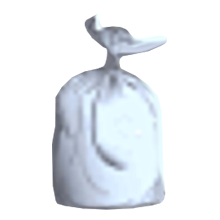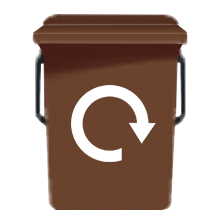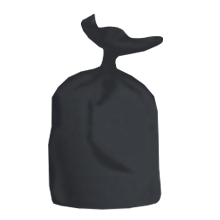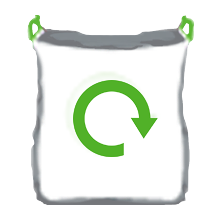How much do you know about Healthy Living?

Public Health Services, based at Le Vauquiedor Office on the Princess Elizabeth Hospital site, has lots of information on all aspects of healthy living. You can contact us for further details at healthyliving@gov.gg or go to the One You website.
Bailiwick of Guernsey Wellbeing Walks
- FREE 30 minute walks are held at various locations around the Bailiwick on every day except Saturday.
- For further details about the walks and venues, see the leaflet on this page, or visit Ramblers Wellbeing Walks Wellbeing Walks (ramblers.org.uk) or call Public Health 01481 224136.
Weight Management
- Maintaining your ideal weight can be a challenge. For straightforward, practical approaches, including an exercise plan, go to the Weight Loss Guide.
Healthy Eating
- A nutritious, well-balanced diet can help you look and feel your best, and help to keep you healthy.
- Eating well is easier than you think!
- Just follow these eight tips to get started, then read how to eat the right foods in the right proportions using the Eatwell Guide.
- Tasty and packed full of vitamins and minerals, fruit and vegetables form part of a healthy balanced diet. Visit this page to find out how a few small changes can help you and your family get the recommended five portions of fruit and vegetables a day.
- The British Nutrition Foundation offers advice and tips on how to put healthy eating and active lifestyles into practice, for life. There is also a section on Food in Schools where you can learn about details of current curriculum requirements and access lesson plans and teaching resources.
- Use this BMI calculator to work out the right weight for your height, then find out how to start losing weight healthily and successfully.
- The Weight Wise campaign page has been developed by the British Dietetic Association and is packed with information and advice on how to manage your weight.
- For lots of hints and tips for food and healthy lifestyle for children and families go to Change4life.
- The Healthy Weight Strategy offers recommendations on how to combat the rising levels of obesity in the Bailiwick.
- For advice and further information for overweight children and families contact us at Lukis House on 01481 222011.
Cancer Awareness Sessions
- Cancer affects one in three people but you can lower your risk of developing many forms through healthy lifestyle choices. For further information go to WCRF website.
Sensible Drinking - Alcohol Awareness
- For many people drinking alcohol is a pleasant social activity. However, alcoholic drinks are best consumed in moderation. To find out more about safe and sensible drinking levels go to Drinkaware website.
Stress Management
- Too much to do? No time for yourself? No escape? The stress of today can be difficult to manage. Further information on handling stress can be found on the NHS website.
Stopping Smoking
Sun Safety
- Learn how to be Sunsmart. Much as we enjoy spending time on our beautiful beaches in the summer, or enjoying outdoor activities in the sunshine, we need to remember that the sun can damage our skin.
- Long-term effects, such as the development of skin cancers, may not be seen for many years.
- The sun emits ultra violet (UV) radiation, which has been shown to cause skin cancers. Children and people with fair skin are at particular risk.
- There are two main sorts of skin cancers: non-melanoma skin cancers (NMSC) and malignant melanoma.
- NMSC are the most common skin cancers and those who tend to be at the highest risk are people who spend long periods of their lives in the sun, e.g. people who work outdoors. Symptoms include a new growth or sore that does not heal within 4 weeks, a spot or sore that continues to itch, hurt, crust, scab or bleed, or persistent unexplained skin ulcers.
- Malignant melanoma is the most serious form of skin cancer and those who tend to be at the highest risk are fair skinned people and those who work inside and are exposed to short, intense periods in the sun e.g. on holiday. Malignant melanoma often starts with a change in look or feel to a mole e.g. darkening, lightening or changing in colour, increase in size, ragged edges, bleeding, itching or blistering or with a new mole.
- These symptoms do not necessarily mean you have a skin cancer, but you should see your GP promptly to get them checked out.
- Cancer Research UK recommends everyone follows the SUNSMART guidelines in order to reduce the risk of skin cancer:
- S - Spend time in the shade between 11am and 3pm
- M - Make sure you never burn
- A - Always cover up with a T-Shirt, hat and sunglasses
- R - Remember to take extra care with young skin (teenagers included)
- T - Then use a suncream with a minimum sun protection factor of 15+ and apply it generously
- Islanders are advised to 'beat the heat' and take care during prolonged hot weather. Most of us appreciate hot weather, but when it's too hot for too long there are health risks.
- For the majority of people, beating the heat is about common sense - staying cool, drinking plenty of water to maintain hydration, and avoiding sunburn. However, some groups can be particularly vulnerable and at much greater risk of harm, especially those with underlying heart and lung conditions, older people, babies and young children. Looking out for people in these groups is important while we are experiencing high temperatures.
- Public Health and NHS England have produced a leaflet offering advice and information on how to stay safe in hot weather, including how to keep your home cool. Beat the Heat: staying well in hot weather leaflet also includes information on who is at greatest risk of ill health from the heat, how to recognise when your or someone else's health may be affected, and what to do if you or someone else becomes unwell as a result of the heat. The accompanying Beat the Heat checklist gives useful tips on keeping cool at home.
- The top tips for 'beating the heat' are to:
- Look out for others, especially older people, young children and babies and those with underlying health conditions
- Close curtains on rooms that face the sun to keep indoor spaces cooler and remember it may be cooler outdoors than indoors
- Drink plenty of water as sugary, alcoholic and caffeinated drinks can make you more dehydrated
- Never leave anyone in a closed, parked vehicle, especially infants, young children or animals
- Try to keep out of the sun between 11am to 3pm
- Walk in the shade, apply sunscreen and wear a hat, if you have to go out in the heat
- Avoid physical exertion in the hottest parts of the day
- Wear light, loose fitting cotton clothes
- Make sure you take water with you if you are travelling
For further information please email healthy.living@gov.ggGuernsey Health Trainers
- Guernsey Health Trainers provide free 1 to 1 healthy lifestyle advice for anyone wanting to change a health behaviour.
- For more information about how a Guernsey Health Trainer could help you, download the flyer from the downloads section of this page.
5 Ways to Wellbeing
- The '5 ways to wellbeing' were designed as a mental health equivalent to the dietary advice to have '5 a day' fruit and vegetables for physical health. They are based on an extensive review of the actions people can take that are positively associated with good mental health and wellbeing. All are free, easily achievable and applicable to anyone's life regardless of their circumstances. For further information see the leaflet in our downloads or visit the Action for Happiness website.
Healthy Hearts
- There are several ways that you can help to reduce your risk of developing coronary heart disease (CHD), these include reducing your blood pressure and cholesterol levels. There are a number of ways you can do this, including following a healthy diet and taking regular exercise.The heart is a muscle and like any other muscle it benefits from exercise. A strong heart can pump more blood around your body with less effort. Any aerobic exercise, e.g. walking, swimming, even dancing, makes your heart work harder and keeps it healthy.
- If you want to improve your health but you're not sure how to go about it, a Guernsey Health Trainer will help you set your goals and then support you to achieve them.
- Find more information on how to keep your heart healthy here.
- The British Heart Foundation offers information on prevention of heart disease, through to symptoms, treatments and recovery.
- Guernsey Chest and Heart LBG Guernsey Chest & Heart LBG is a Company 'Limited by Guarantee' which was formed from the Guernsey Chest & Heart Association at the end of 2005. Guernsey Chest & Heart LBG is a charitable body, primarily concerned with the provision of a free health screening service to the residents of the Bailiwick of Guernsey. Find out more about their free screening and blood pressure checks visit their website.
Child Injury Prevention
- Accidental injury is one of the biggest single causes of death in the UK for children over the age of one and many of the accidents that happen in and around the home can be avoided.
- More children die each year as a result of accidents than from illnesses such as leukaemia or meningitis. By identifying and understanding potential accident risks in the home, you can take some basic safety steps that will keep your children safe and give you peace of mind. The links below provide information on child safety for parents, carers, teachers and health professionals.
- The Child Accident Prevention Trust is committed to reducing the number of children and young people killed, disabled or seriously injured in accidents.
- RoSPA (Royal Society for the Prevention of Accidents) promotes safety and the prevention of accidents at work, at leisure, on the road, in the home and through safety education.
- Follow this link to make your home childproof and prevent avoidable accidents.
- The aim of the Staywise website is to collate existing educational resources from emergency services and other agencies from around the country and present them here for use by teachers and service personnel.
Guernsey Child Measurement Programme (GCMP) - information on data storage and protection
- The Guernsey Child Measurement Programme, which is endorsed by the Committee for Health and Social Care and the Committee for Education, Sport and Culture, is carried out annually and results in information to help check that the population of children is growing in a healthy way. The anonymised data help to develop policies and programmes designed to benefit our children's future health. The Programme has been reviewed against current data protection law and information on the storage and protection of the data gathered during the GCMP can be found to the right of your screen in the 'Downloads section'. Further information on the Committee for Health and Social Care's fair processing of data can be found here: Fair processing of data
For further information on healthy lifestyles contact Public Health Services on 01481 224136 or email us at healthyliving@gov.gg. You can also check out our Facebook page.













